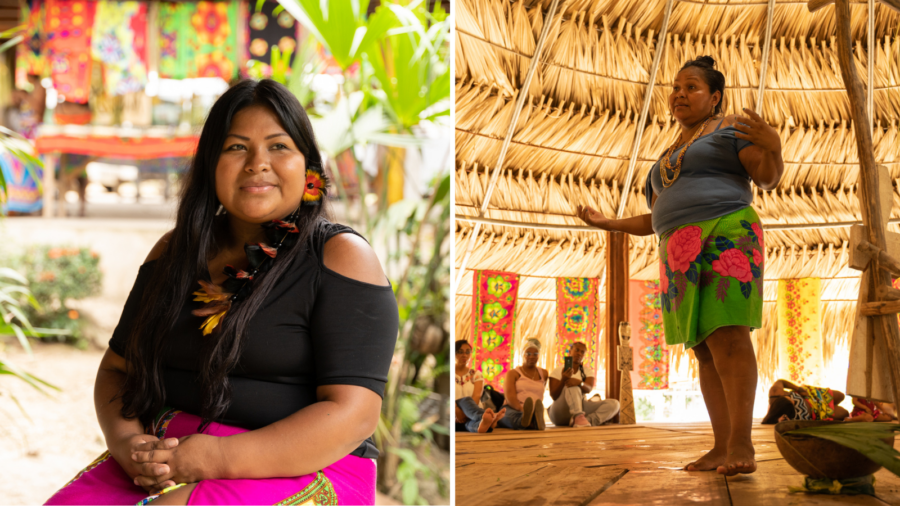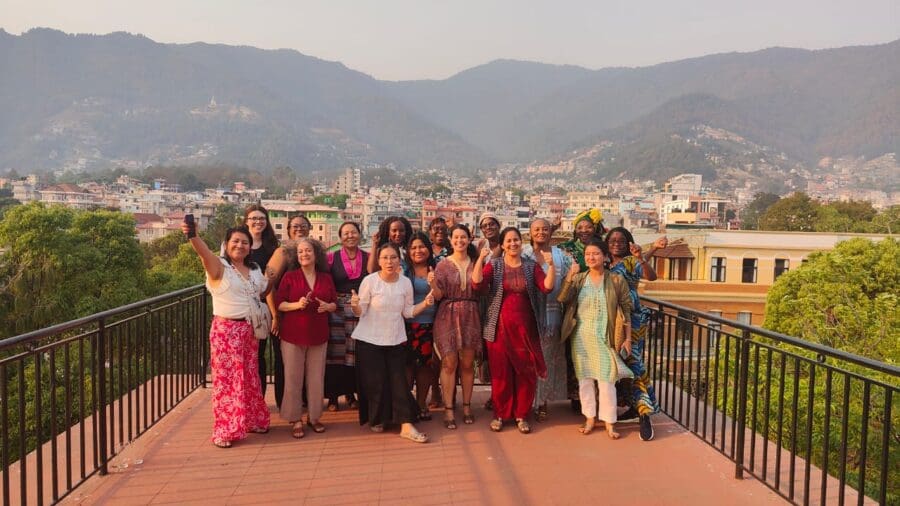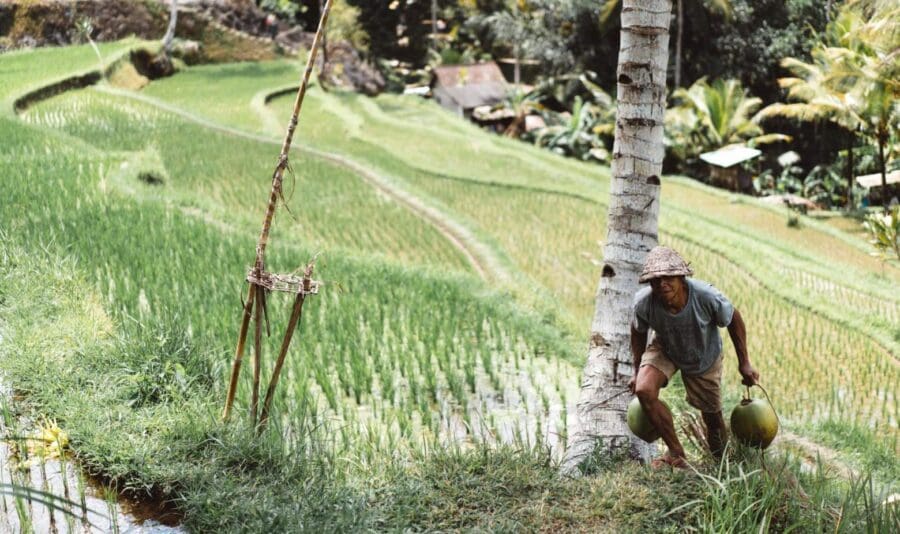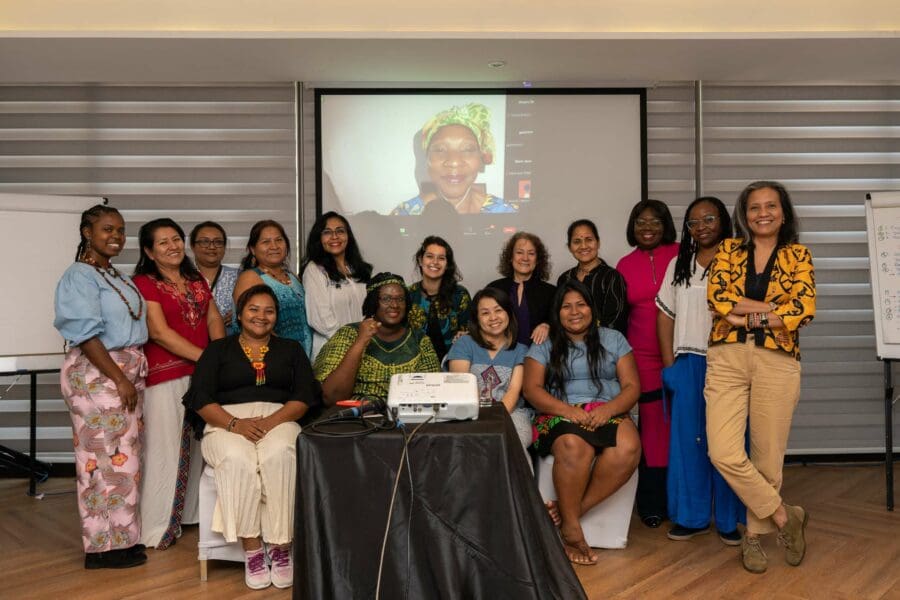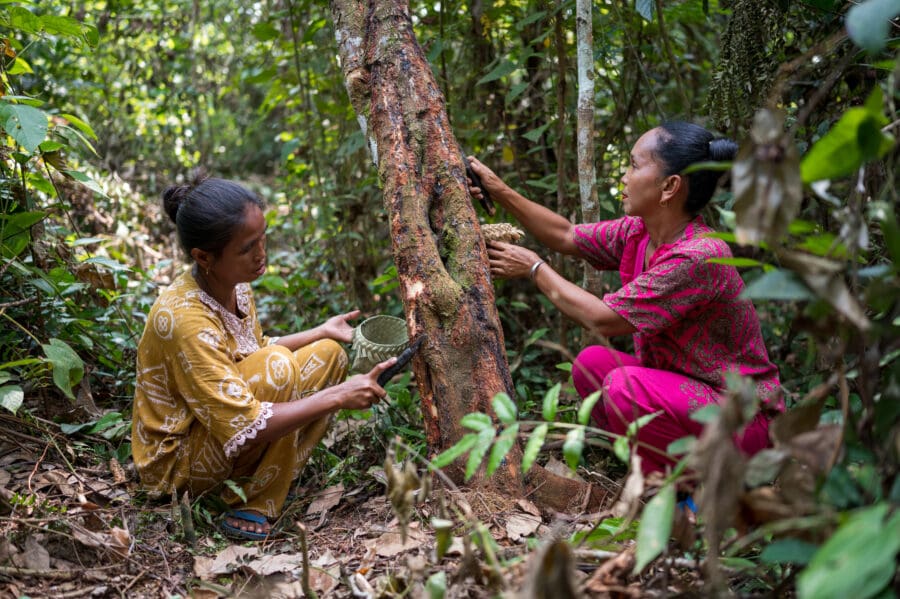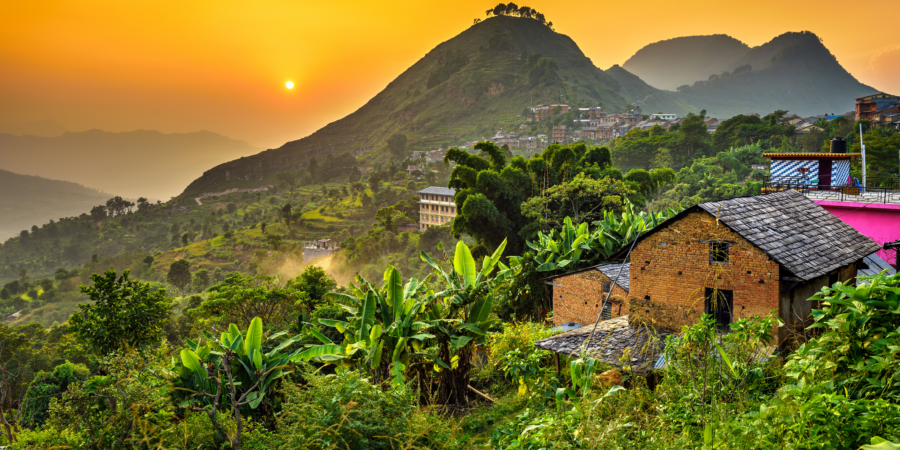This op-ed was originally published in Spanish in El País.
In 1975, our community, Ipetí Emberá, in Panama, was forced to relocate due to the construction of the hydroelectric plant on the Bayano River. In doing so, we lost not only our ancestral lands, but also our means of subsistence. Our forced displacement exemplifies one of the widespread patterns in which Indigenous Peoples’ voices, and especially women’s, are excluded from decisions that affect our lives and territories, as well as the connection we have to the land.
By passing on traditional knowledge and continuing sustainable practices such as ancestral farming, Indigenous women and girls offer inestimable solutions to climate change mitigation and adaptation. Women in our community have recovered ancestral seeds, reforested land, and fostered economic initiatives in accordance with our cultural values. We have created leadership schools where we teach and learn traditional dance, music, art, and medicine.
All these undertakings have been created and sustained by the community itself, with limited resources, due to the inconsistency, insufficiency, and limited scope of external financing.
However, to create effective solutions that support climate resilience and innovations by Indigenous Peoples, and to have our voices truly heard, governments and donors must commit to direct, gender-sensitive, flexible, long-term, timely and accessible funding.
In our community, we became leaders due to the urgent need to fight for our territories and confront those who threaten to displace and silence us. In 2000, this necessity led me, Omayra Casamá, to become the first woman chief of the Alto Bayano Emberá community in Panama. Although my term ended in 2004, our struggle for women’s rights continues.
Together with Sara Omi, as mother and daughter, and as members of the Women in Global South Alliance for tenure and climate (WiGSA), we are sharing a resounding call to action in support of Indigenous, Afro-descendant, and local community women and girls in the Global South: we must not be left behind in global climate agendas and policy frameworks like our community was left behind in 1975.
Our involvement in WiGSA is a testament to reclaiming these spaces and ensuring our voices resonate globally. But our Call to Action extends far beyond funding—it demands genuine engagement and empowerment of women in decision-making processes. Decentralizing funding channels and fostering direct dialogue with women leaders is crucial to understanding and addressing the multifaceted challenges we face, including pervasive violence.
Denying women direct access to funding perpetuates systemic inequalities and undermines our efforts to combat violence and achieve sustainable development. Lack of direct access to funding is a form of violence against women.
In the coming months, the world will participate in the COP16 Convention on Biological Diversity in Colombia and the COP29 Climate Change Conference in Azerbaijan to advocate for conservation and climate change policies in support of the 2030 Agenda. We invite policy makers to recognize the importance of working directly with women leaders from the Global South at these convocations.
A sustainable future is one where Indigenous, Afro-descendant, and local community women’s voices are not only heard but are integral to achieving meaningful conservation and climate change action.
Governments should prioritize our participation and perspectives. This is because policies designed without taking us into consideration run the risk of neglecting our needs, perpetuating injustices, and establishing solutions to climate change that are disconnected from ancestral traditions and the necessary harmonious relationship between nature and the communities that inhabit it.
The international community, donors, and governments must increase and guarantee direct climate finance of our rights agendas. Only then can we build a future where conservation and climate change actions are truly fair and inclusive for all.
###
Omayra Casamá is president of the Asociación de Mujeres Artesanas de Ipeti Emberá (AMAIRIE) and a member of the Coordinadora de las Mujeres Líderes Territoriales de Mesoamérica. Sara Omi is president of the Coordinadora de las Mujeres Líderes Territoriales de Mesoamérica and a member of the Women in Global South Alliance for Tenure and Climate (WiGSA). They are mother and daughter.
